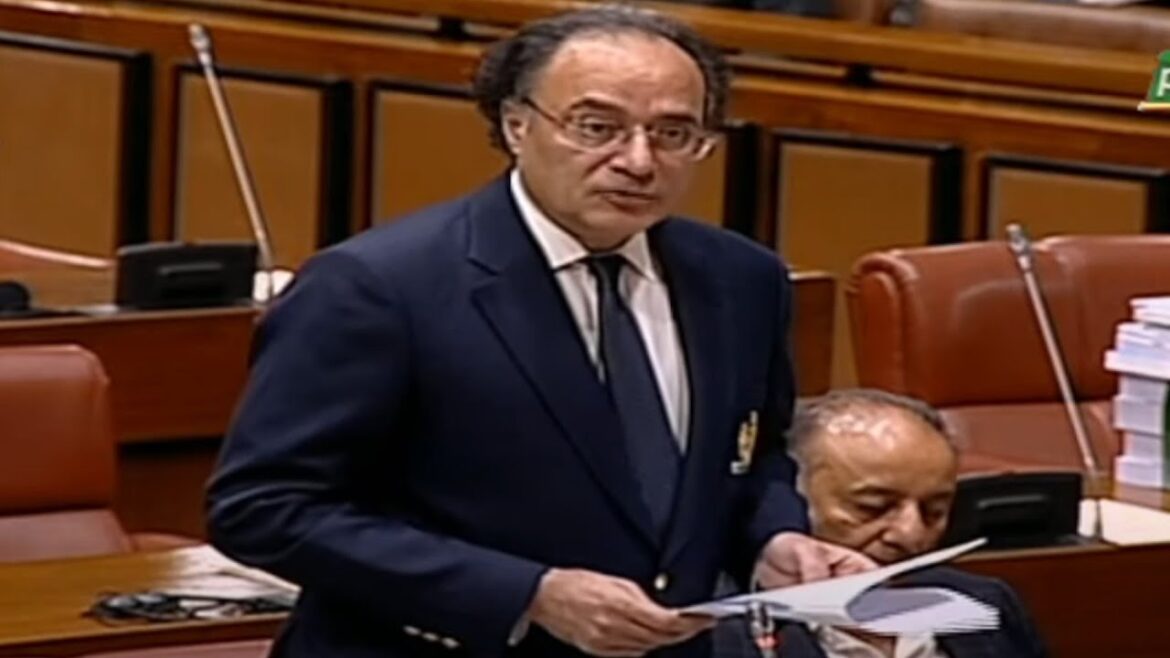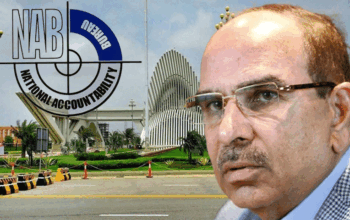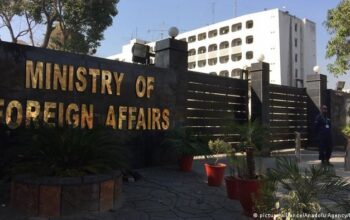By Staff Reporter
ISLAMABAD: The government has cut income taxes for salaried workers, lowering the rate for those earning up to Rs1.2 million annually from 5% to 1%, Finance Minister Muhammad Aurangzeb told the Senate session on Saturday.
The move, directed by Prime Minister Shehbaz Sharif, aims to lighten the financial load on a segment grappling with persistent inflation while reinforcing trust in the nation’s tax system.
“The salaried class bears the burden of inflation and also pays [due] taxes. The reduction in the income tax is already part of the proposed budget [for FY26]. On the directions of Prime Minister Shehbaz Sharif, the government has reduced tax on those earning from Rs600,000 to Rs1.2 million per year from [the proposed] 2.5% to a [mere] 1%,” Aurangzeb said.
“We [the government] hope that this move will not only result in the increase of disposable income of the [salaried] class but also restore their trust in the taxation system.”
The tax reduction is embedded in the Rs17.57 trillion budget for the fiscal year 2026, which includes broad cuts in income tax rates for salaried workers. Initially, the budget proposed slashing the tax rate for those earning between Rs600,000 and Rs1.2 million to 2.5% from 5%, but following consultations and the prime minister’s intervention, it was further lowered to 1%. “This is the segment that endures inflation and pays taxes,” Aurangzeb noted.
The budget extends relief to higher income brackets as well. For individuals earning up to Rs2.2 million annually, the tax rate will drop from 15% to 11%, a reduction of 4%. Those earning between Rs2.2 million and Rs3.2 million will see their rate ease from 25% to 23%. Additionally, a 1% cut in the surcharge for those earning over Rs1 million has been proposed to curb brain drain, targeting highly skilled professionals tempted to leave Pakistan due to steep tax burdens.
The government has also scaled back the proposed GST on imported solar panels from 18% to 10% after deliberations with lawmakers.
Aurangzeb explained that the initial 18% rate aimed to shield local industries and foster investment in domestic solar technology. “The government in its budget proposed to impose an 18% GST on imported solar panels. This was done to protect local industries and provide a level playing field, and promote the development and investment in solar technology in Pakistan,” he said.
However, following discussions in both legislative houses, the tax was reduced to 10% and will apply to only 46% of imported components.
“With this measure, the price of solar panels will increase by 4.6%,” Aurangzeb said, reaffirming the government’s commitment to renewable energy adoption.
The finance minister also addressed reports of profiteering and hoarding in the solar panel market, condemning opportunistic price hikes ahead of the tax changes. “It is condemnable that these opportunistic actors have artificially increased prices even before the proposed measure has come into effect,” he said. “I strongly warn such elements that the government will take every possible step in the public interest.” He assured the Senate that legal action would target those exploiting the policy shift.
Copyright © 2021 Independent Pakistan | All rights reserved




